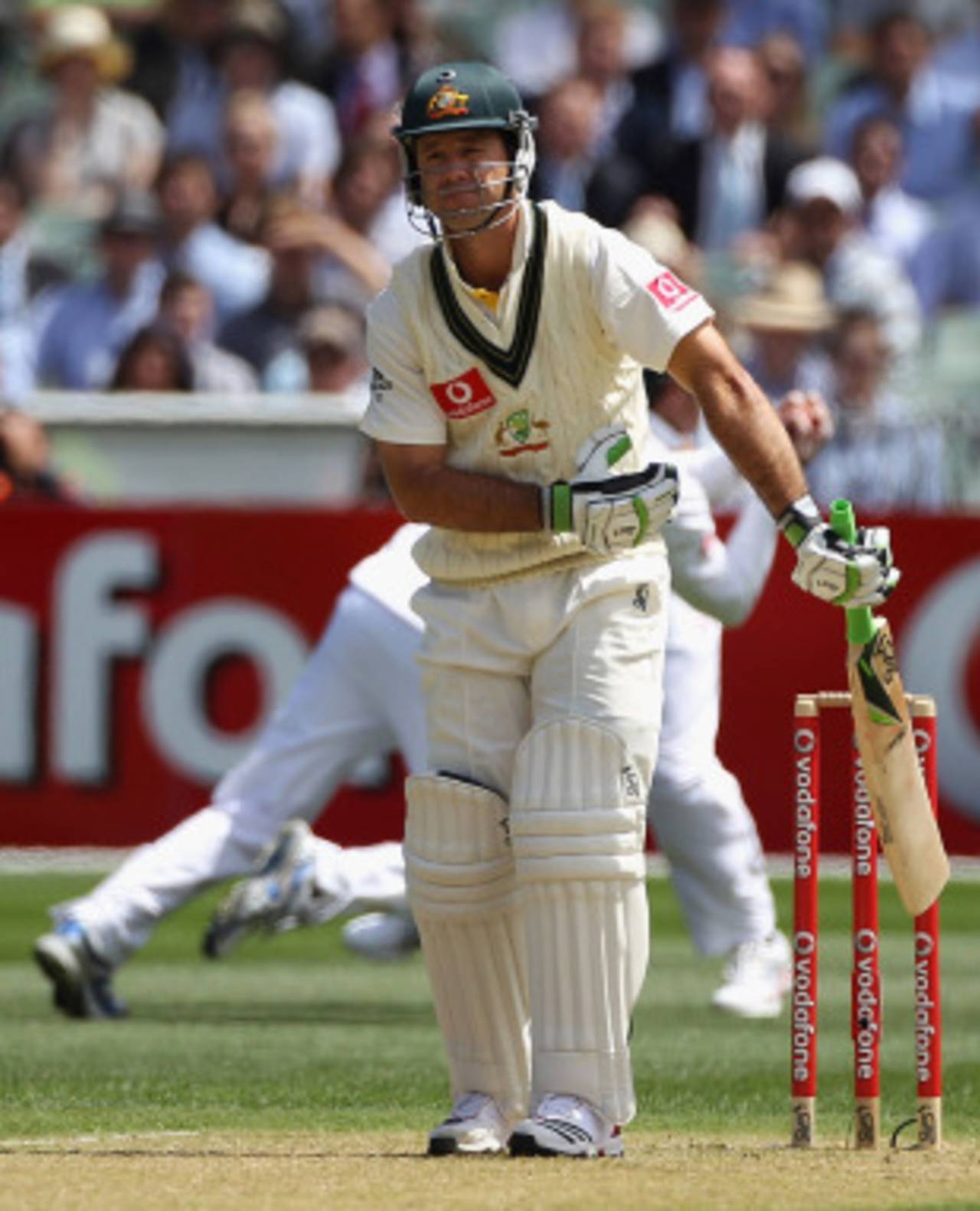Tendulkar, Ponting and the question of retirement
What are the signs that lead a player to decide on retirement? And are there any successors to these two greats?
Ian Chappell
05-Jun-2011

Ricky Ponting has expressed his desire to play the 2013 Ashes, but that probably has to do with his unsuccessful captaincy record in England • Getty Images
Whenever the conversation turns to ageing batsmen and retirement, there's much conjecture about what goes first, the eyes or the legs. In reality, it's usually the mind.
There are exceptions. Barry Richards admitted his eyesight began to fade during World Series Cricket. Given it was a tournament where a top-class fast bowler appeared at nearly every bowling change, it was an unfortunate time to start seeing the ball a little blurry. And New Zealander Martin Crowe was a top-class batsman whose knee injury forced him to retire roughly 400 short of 20,000 first-class runs.
However, it's generally something in the mind that brings a batsman to the conclusion that it's time to declare.
Greg Chappell, at his peak a mentally well-organised batsman, announced his retirement prior to his last Test. He needed 69 runs to pass Sir Donald Bradman as Australia's highest run-getter, and when asked why he made the announcement before the game, he replied, "My concentration had been wavering for a while, so I figured that was the only way to force my mind to work at full capacity."
His ploy succeeded, because, along with former India captain Mohammad Azharuddin, he's the only batsman to score a century in his first and last Test innings.
Brian Lara retired a few years ago, presumably because he had had enough. What is the likely fate of two other dominant batsmen from that era, Sachin Tendulkar and Ricky Ponting?
Tendulkar has suffered from injuries and the odd form dip during his glittering career, but his recent renaissance is proof there's nothing wrong with his eyesight. And his running between wickets during an extraordinary limited-overs double-century suggests leg problems won't force him out of the game.
Retirement can be hastened by any number of factors: other priorities in life, a sudden dread of training or lengthy stints in the field, or even the departure of long-time team-mates.
Tendulkar is a player who genuinely loves playing cricket. Certainly the contest between bat and ball and the challenge of maintaining high standards still hold an attraction for his competitive instincts. Nevertheless, with India's rise to the No. 1 ranking and winning a World Cup trophy, he must be close to completing his cricketing bucket list. The moment of realisation for him might be the retirements of Rahul Dravid and VVS Laxman; if he looks around the dressing room and they are not there, suddenly Test cricket might not hold the same attraction.
Ponting has gone through a testing period. Lack of runs, an unexpected frailty against the short-pitched delivery, and then retirement from the captaincy must have made him think seriously about cricketing mortality. But his hundred against India in the quarter-final of the World Cup was Ponting at his fighting best, if not his most fluent.
His desire to play on could have him fight a battle on dual fronts. After relinquishing the responsibility of captaincy, to also bat lower in the order could be a mistake. Part of what has driven Ponting to be a top-class batsman is the challenge of resurrecting an innings and then setting a course, directing the process from the No. 3 position. The lack of that motivation, on top of not having the captaincy, might leave him with a slightly empty feeling.
One of the more drastic changes in the game is that the former-player dictum of retiring when people are saying, "Why did you?", rather than "Why didn't you?" is a lot harder to follow now with the riches available to the modern cricketer. There's also the attraction of a staggered retirement. Now a player can simply retire from one form of the game to prolong his career in another.
Ponting has hinted at touring the UK in 2013, but that has more to do with his captaincy record in that part of the world. Tendulkar, as with most things outside of batting, has wisely kept his cards close to his chest.
With the retirement of these two dominant batsmen imminent, it would be comforting to know there is a young player or two ready to take on their mantle. But while there are some good young batsmen around, the next dominant one hasn't yet surfaced.
Former Australia captain Ian Chappell is now a cricket commentator and columnist